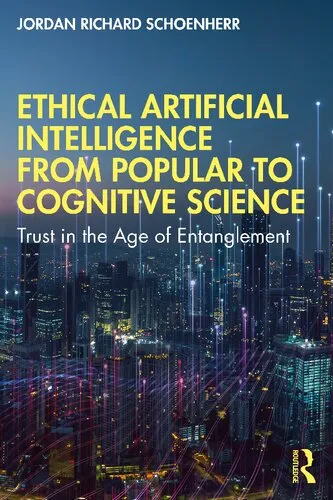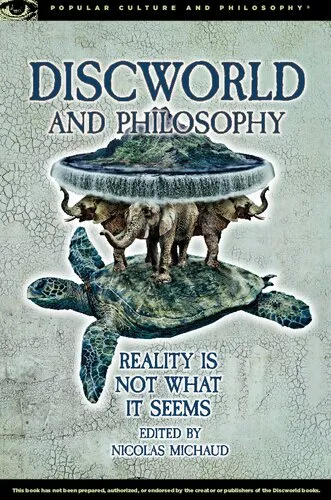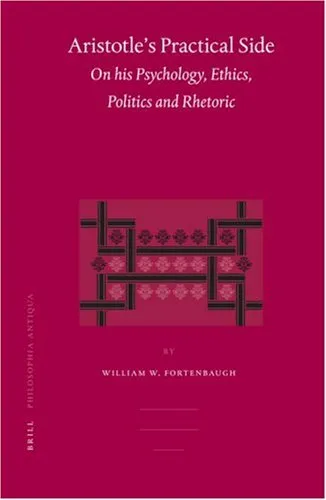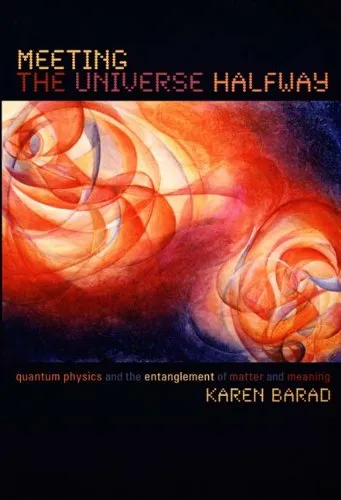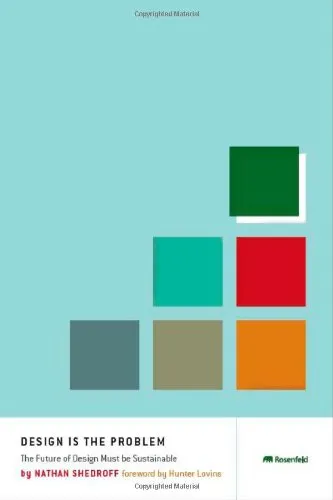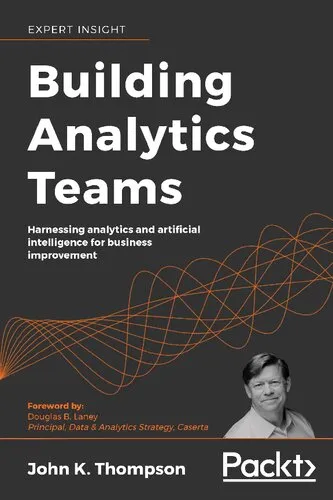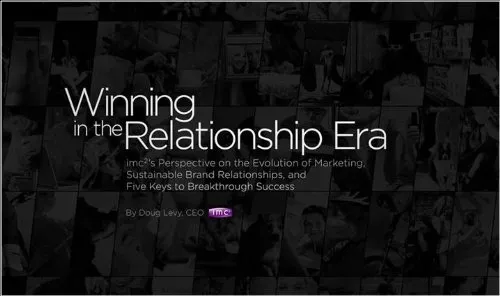Ethical Artificial Intelligence from Popular to Cognitive Science: Trust in the Age of Entanglement
4.5
بر اساس نظر کاربران

شما میتونید سوالاتتون در باره کتاب رو از هوش مصنوعیش بعد از ورود بپرسید
هر دانلود یا پرسش از هوش مصنوعی 2 امتیاز لازم دارد، برای بدست آوردن امتیاز رایگان، به صفحه ی راهنمای امتیازات سر بزنید و یک سری کار ارزشمند انجام بدینکتاب های مرتبط:
معرفی کتاب
کتاب "Ethical Artificial Intelligence from Popular to Cognitive Science: Trust in the Age of Entanglement" به قلم Jordan Richard Schoenherr، بحثی گسترده و چندلایه درباره مسائل اخلاقی موجود در حوزه Artificial Intelligence (AI) است. این کتاب یک دیدگاه میانرشتهای ارائه میدهد که پایههای فلسفی، روانشناختی و علمی این فناوریهای در حال تحول سریع را بررسی میکند. هدف اصلی کتاب، تحلیل عمیق این موضوع است که چگونه اعتماد به AI در دنیایی که به شدت به فناوری وابسته است، شکل میگیرد و تحول مییابد.
خلاصه جامع کتاب
در این کتاب، نویسنده به شکلی سیستماتیک به بررسی چگونگی ضبط و تفسیر مفاهیم اخلاقی توسط سیستمهای هوش مصنوعی میپردازد. با پیشرفت AI، نه تنها قابلیتهای شناختی این فناوریها بلکه اثرات آنها بر جامعه بشری نیز تغییر یافته است.
بخش اول کتاب، خواننده را با تاریخچه کوتاهی از ظهور هوش مصنوعی و مبانی آن آشنا میکند. نویسنده به سوالات اساسی میپردازد: آیا یک ماشین میتواند اخلاقی باشد؟ آیا ممکن است معیارهای انسانی برای سیستمهای غیر انسانی مناسب باشند؟ سپس در بخشهای بعدی، دلایل پیچیدهتر این تغییرات بررسی شده، از جمله تعامل بین علوم شناختی و علوم کامپیوتر و تأثیر این تعامل بر ایجاد اعتماد.
نویسنده در ادامه توضیح میدهد که چرا درک روانشناسی اعتماد در دنیای پیچیده امروز به عنوان یکی از بنیادیترین عواملی که میتواند پیشرفت یا نابودی این فناوریها را رقم بزند، مطرح است. مفاهیمی همچون اخلاق خودکار (Machine Ethics)، مسئولیتپذیری الگوریتمها، و شفافیت در توسعه سیستمها به شکلی قابل فهم و دقیق واکاوی شده است.
نکات کلیدی کتاب
- تعریف اخلاق در زمینه فناوری و نحوه پیادهسازی آن در Artificial Intelligence.
- نقش علوم شناختی در فهم عملکرد و قابلاعتماد بودن سیستمهای هوش مصنوعی.
- تحلیل روانشناسی اعتماد و تأثیر آن بر پذیرش اجتماعی AI.
- بررسی مسئولیتپذیری الگوریتمها و پیامدهای اخلاقی آنها.
- اهمیت شفافیت و قابلیت توضیح عملکرد ماشینآلات پیچیده.
نقلقولهای مشهور از کتاب
"اعتماد همیشه از شفافیت تغذیه میشود؛ یک سیستم که خود را توضیح نمیدهد، نمیتواند اعتماد ما را جلب کند."
"برای اینکه شور و اشتیاق ما برای فناوری محتاطانه باشد، باید بدانیم که ethics همیشه به پیشرفت علمی ارجح است."
"هر الگوریتمی داستانی دارد، اما آیا ما آن داستان را میفهمیم؟"
چرا این کتاب اهمیت دارد؟
کتاب "Ethical Artificial Intelligence" یک منبع فوقالعاده برای هر کسی است که میخواهد درک عمیقتری از تعاملات میان اخلاق و تکنولوژی داشته باشد. این کتاب نه تنها به متخصصان فنی که به توسعه سیستمهای AI میپردازند کمک میکند، بلکه برای دانشجویان، اساتید، و حتی تصمیمگیرندگان سیاسی نیز مناسب است. با تمرکز بر اعتماد و اخلاق به عنوان عناصر محوری، این اثر به راهحلهایی برای چالشهای معاصر اشاره دارد و خواننده را با تفکر بازتر و جامعتر به سمت آینده سوق میدهد.
در عصر حاضر که تکنولوژی حتی خصوصیترین اجزای زندگی ما را لمس میکند، کتاب Schoenherr به عنوان یک منبع ضروری برای جهتدهی به بحثهای مربوط به AI و مسئولیتپذیری آن مطرح میشود.
Introduction
Artificial Intelligence (AI) represents one of the most transformative advancements in contemporary technology, touching every aspect of our lives, from healthcare to entertainment, transportation, and beyond. Yet with its growing dominance comes an urgent, complex question: how can AI systems be designed, implemented, and overseen ethically? In Ethical Artificial Intelligence from Popular to Cognitive Science: Trust in the Age of Entanglement, I explore this intricate network, a web where ethics, cognitive science, and technology meet. This book delves into how trust in AI systems is fostered, misplaced, and sometimes manipulated, all through the lens of popular perceptions and scientific principles. It calls upon us to embrace a nuanced understanding of AI's potential to serve humanity while recognizing its risks.
This book serves as both a philosophical inquiry into AI’s ethics and a practical guide, bridging the gap between technical design and human values. It is structured to explore key ideas from popular interpretations of AI as seen in films and media, while also grounding the discussion in theory and empirical evidence from the field of cognitive science. Ultimately, my goal is to guide readers in rethinking their relationship with AI in this “age of entanglement,” where humans and machines are increasingly interwoven.
Summary of the Book
Ethical Artificial Intelligence from Popular to Cognitive Science: Trust in the Age of Entanglement begins with an analysis of how AI is portrayed in public discourse and popular culture. From dystopian fears to utopian dreams, popular narratives both inform and distort our understanding of what AI actually is. This sets the stage for deeper explorations of the ethical concerns AI presents—issues of bias, accountability, and transparency.
The book then transitions into cognitive science, offering readers a deeper understanding of how humans perceive and evaluate AI systems. Concepts such as trust calibration, mental models, and user experience form the foundation for exploring the psychology of human-machine interactions. Here, I argue that trust is not just a technical problem to be solved but a relational one, intrinsically tied to our cognitive and emotional frameworks.
The last third of the book addresses the future: how can developers, policymakers, and users build a more ethical AI ecosystem? By offering real-world examples and actionable frameworks, I bring theory into practice, ensuring that readers not only grasp the ethics of AI but also understand how to apply these principles in meaningful, tangible ways.
Key Takeaways
- 1. Ethics is not optional: All AI systems involve ethical decisions, whether explicit or implicit.
- 2. Trust is central: Building and maintaining trust requires transparency, fairness, and accountability.
- 3. Cognitive science matters: Understanding human psychology is critical for evaluating and designing effective AI systems.
- 4. Popular culture shapes perceptions: Media depictions can both inspire and mislead our understanding of AI.
- 5. The future requires action: There is no time to delay; ethical and practical guidelines must be implemented as AI continues to evolve.
Famous Quotes from the Book
"Trust is neither a luxury nor an afterthought in AI design—it is the very foundation of its legitimacy."
"When machines make decisions, they inherit the imperfections of their creators and the data they are fed."
"To truly interact ethically with machines, we must first confront our own ethical blind spots as humans."
Why This Book Matters
In many ways, the future of AI will shape the future of humanity. This makes the ethical inspection of AI not just important, but urgent. The choices made today in designing algorithms, implementing machine learning systems, and planning regulations will ripple through generations.
My book matters because it invites diverse audiences—engineers, policymakers, philosophers, and everyday users—into this critical dialogue. It avoids overly technical jargon, instead presenting ideas in a way that is both intellectually rigorous and accessible. Whether you are an AI expert or simply curious about where technology is headed, you will find something valuable in these pages.
By challenging assumptions and calling for action, Ethical Artificial Intelligence from Popular to Cognitive Science: Trust in the Age of Entanglement provides a roadmap for navigating the complexities of AI with care, trust, and integrity.
دانلود رایگان مستقیم
شما میتونید سوالاتتون در باره کتاب رو از هوش مصنوعیش بعد از ورود بپرسید
دسترسی به کتابها از طریق پلتفرمهای قانونی و کتابخانههای عمومی نه تنها از حقوق نویسندگان و ناشران حمایت میکند، بلکه به پایداری فرهنگ کتابخوانی نیز کمک میرساند. پیش از دانلود، لحظهای به بررسی این گزینهها فکر کنید.
این کتاب رو در پلتفرم های دیگه ببینید
WorldCat به شما کمک میکنه تا کتاب ها رو در کتابخانه های سراسر دنیا پیدا کنید
امتیازها، نظرات تخصصی و صحبت ها درباره کتاب را در Goodreads ببینید
کتابهای کمیاب یا دست دوم را در AbeBooks پیدا کنید و بخرید
1188
بازدید4.5
امتیاز0
نظر98%
رضایتنظرات:
4.5
بر اساس 0 نظر کاربران
Questions & Answers
Ask questions about this book or help others by answering
No questions yet. Be the first to ask!
